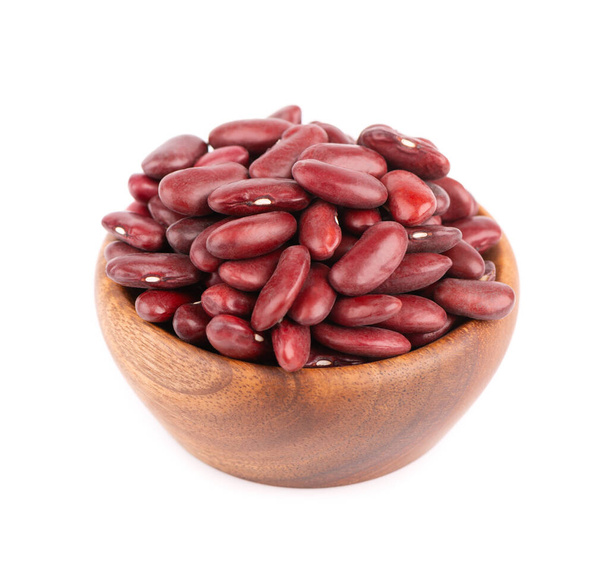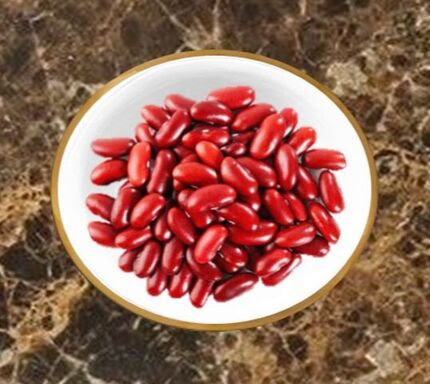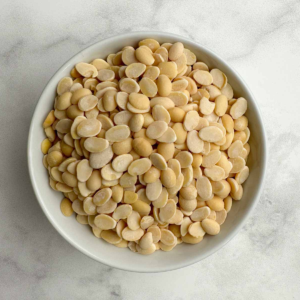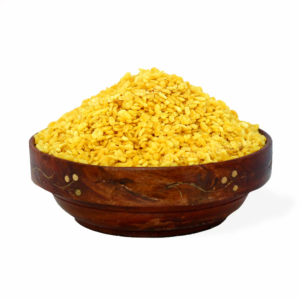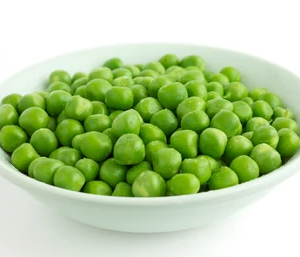Description
Kidney beans are medium-sized, oval-shaped beans with a characteristic reddish-brown or maroon color. They have a firm texture and hold their shape well when cooked. Kidney beans are often cooked with spices and other ingredients, making them a core ingredient in a variety of savory dishes. They are a rich source of plant-based protein, fiber, and other essential nutrients, contributing to their popularity as a vegetarian protein source.
Nutritional Profile of Kidney Beans (Rajma):
Kidney beans are packed with nutrients that contribute to their status as a healthful food. A 1-cup serving (approximately 177 grams) of cooked kidney beans provides the following:
- Calories: Approximately 225-240 calories.
- Protein: About 13-15 grams of protein per cup, making them an excellent source of plant-based protein for vegetarians and vegans.
- Carbohydrates: Approximately 40 grams of carbohydrates, including 12 grams of dietary fiber, which helps regulate digestion and supports gut health.
- Vitamins: Kidney beans provide several B-vitamins, including folate (B9), thiamine (B1), niacin (B3), and Vitamin B6, which play vital roles in energy production, brain function, and the formation of red blood cells. They also contain small amounts of Vitamin K and Vitamin C.
- Minerals: Kidney beans are rich in iron, magnesium, potassium, phosphorus, zinc, and calcium. Iron is crucial for oxygen transport, magnesium and potassium support muscle and nerve function, and calcium is essential for bone health.
- Antioxidants: Kidney beans contain various antioxidants, including flavonoids, polyphenols, and carotenoids, which help protect cells from oxidative damage and inflammation.
Health Benefits of Kidney Beans (Rajma):
1. High in Protein:
Kidney beans are an excellent source of plant-based protein, providing about 13-15 grams per cup. This makes them an ideal food choice for vegetarians and vegans, as they can help meet protein needs without animal-based products. Protein is essential for tissue repair, muscle growth, and immune function.
2. Supports Digestive Health:
Kidney beans are high in fiber, which helps regulate digestion by adding bulk to stool and promoting regular bowel movements. Fiber is also beneficial for preventing constipation and supporting gut health. It feeds beneficial bacteria in the gut, improving overall digestive health.
3. Aids in Weight Management:
Due to their high protein and fiber content, kidney beans promote satiety and help control appetite. This can lead to reduced calorie intake and better weight management. Eating kidney beans in meals may help prevent overeating by keeping you fuller for longer.
4. Stabilizes Blood Sugar Levels:
Kidney beans have a low glycemic index, meaning they do not cause a rapid spike in blood sugar levels after consumption. This makes them an excellent food choice for people with diabetes or those seeking to maintain healthy blood sugar levels. The fiber in kidney beans also slows the absorption of sugars, contributing to better blood sugar control.
5. Supports Heart Health:
The high fiber content in kidney beans helps lower cholesterol levels, reducing the risk of heart disease. Kidney beans are also rich in potassium and magnesium, which help regulate blood pressure, supporting heart health. Additionally, the antioxidants in kidney beans help reduce inflammation and oxidative stress, which are linked to cardiovascular disease.
6. Rich in Iron:
Kidney beans are a good source of iron, which is necessary for the production of hemoglobin and the transport of oxygen throughout the body. Consuming iron-rich foods like kidney beans can help prevent iron-deficiency anemia, a condition that can lead to fatigue and weakness.
7. Supports Bone Health:
Kidney beans contain essential minerals like calcium, magnesium, and phosphorus, which are important for maintaining strong bones. Magnesium and calcium help in bone mineralization and density, reducing the risk of osteoporosis and fractures.
8. Promotes Healthy Skin:
Kidney beans contain Vitamin C and other antioxidants, which play a role in collagen production and protecting the skin from oxidative damage. Vitamin C is essential for maintaining healthy, glowing skin and can help reduce the signs of aging.
9. Helps Detoxify the Body:
The fiber and antioxidants in kidney beans support the body’s natural detoxification processes. Fiber helps remove waste products and toxins from the digestive system, while antioxidants neutralize free radicals that can damage cells and tissues.
10. Supports Immune Function:
The antioxidants and micronutrients in kidney beans, including Vitamin C, zinc, and iron, help boost immune function. These nutrients help the body fight infections and promote overall health by supporting the production of white blood cells and enhancing immune responses.
How to Use Kidney Beans (Rajma):
- Rajma Masala: The most popular dish made with kidney beans is Rajma Masala, a spiced curry made by cooking the beans with onions, tomatoes, garlic, ginger, and a blend of Indian spices. It is often served with rice, creating the iconic Rajma-Rice combination.
- Rajma Salad: Kidney beans can be used in salads, combined with fresh vegetables, herbs, and a tangy dressing. You can add ingredients like cucumber, tomatoes, onions, and cilantro to make a refreshing, nutritious salad.
- Soups and Stews: Kidney beans are a great addition to soups and stews, where they absorb the flavors of the broth and vegetables. They pair well with vegetables like carrots, celery, and bell peppers in hearty bean soups.
- Chili: Kidney beans are a key ingredient in vegetarian chili. They can be cooked with tomatoes, bell peppers, onions, chili powder, and other spices to make a warming and filling chili dish.
- Vegetarian Tacos or Burritos: Kidney beans can be used as a filling for tacos or burritos. Simply season them with spices like cumin, garlic powder, and chili powder, and pair with fresh toppings like lettuce, tomatoes, and avocado.
- Rice Dishes: Kidney beans can be added to rice dishes like bean pulao or biryanis for extra flavor and nutrition. They can also be mixed with quinoa for a protein-packed side dish.
- Kidney Bean Patties or Burgers: Mashed kidney beans can be shaped into patties or burgers, seasoned with herbs and spices, and pan-fried for a delicious vegetarian alternative to meat burgers.
- Kidney Bean Hummus: Kidney beans can be blended with tahini, garlic, lemon juice, and olive oil to make a bean-based hummus. It can be served as a dip for vegetables or pita bread.
- Kidney Bean Stir-Fry: Stir-fry kidney beans with vegetables like bell peppers, onions, and spinach. Season with soy sauce, garlic, and ginger for a flavorful, quick meal.
- Casseroles: Kidney beans are often used in casseroles, where they are baked with a variety of vegetables, grains, and spices. They can provide a hearty base for a comforting, one-dish meal.
Considerations:
- Soaking and Cooking: Raw kidney beans contain lectins, a type of protein that can be toxic if consumed in large amounts. To neutralize these compounds, it is essential to soak kidney beans overnight and then cook them thoroughly before eating. Canned kidney beans have already been cooked, so they do not require further preparation.
- Storage: Dried kidney beans should be stored in an airtight container in a cool, dry place. They can last for several months when stored properly. Cooked kidney beans can be refrigerated for up to 3-4 days and frozen for longer storage.
- Allergies: While rare, some people may be allergic to beans or legumes. If you experience any signs of an allergic reaction, such as swelling, hives, or difficulty breathing, seek medical attention immediately.
In Summary:
Kidney beans (Rajma) are a highly nutritious legume that provides a rich source of plant-based protein, fiber, vitamins, and minerals. They offer numerous health benefits, including supporting heart health, digestive health, immune function, and weight management. Kidney beans are versatile in the kitchen and can be used in a variety of dishes, from curries and soups to salads and snacks. Whether you’re preparing a traditional Rajma Masala or exploring new ways to incorporate kidney beans into your meals, they are a delicious and healthful addition to any diet.


